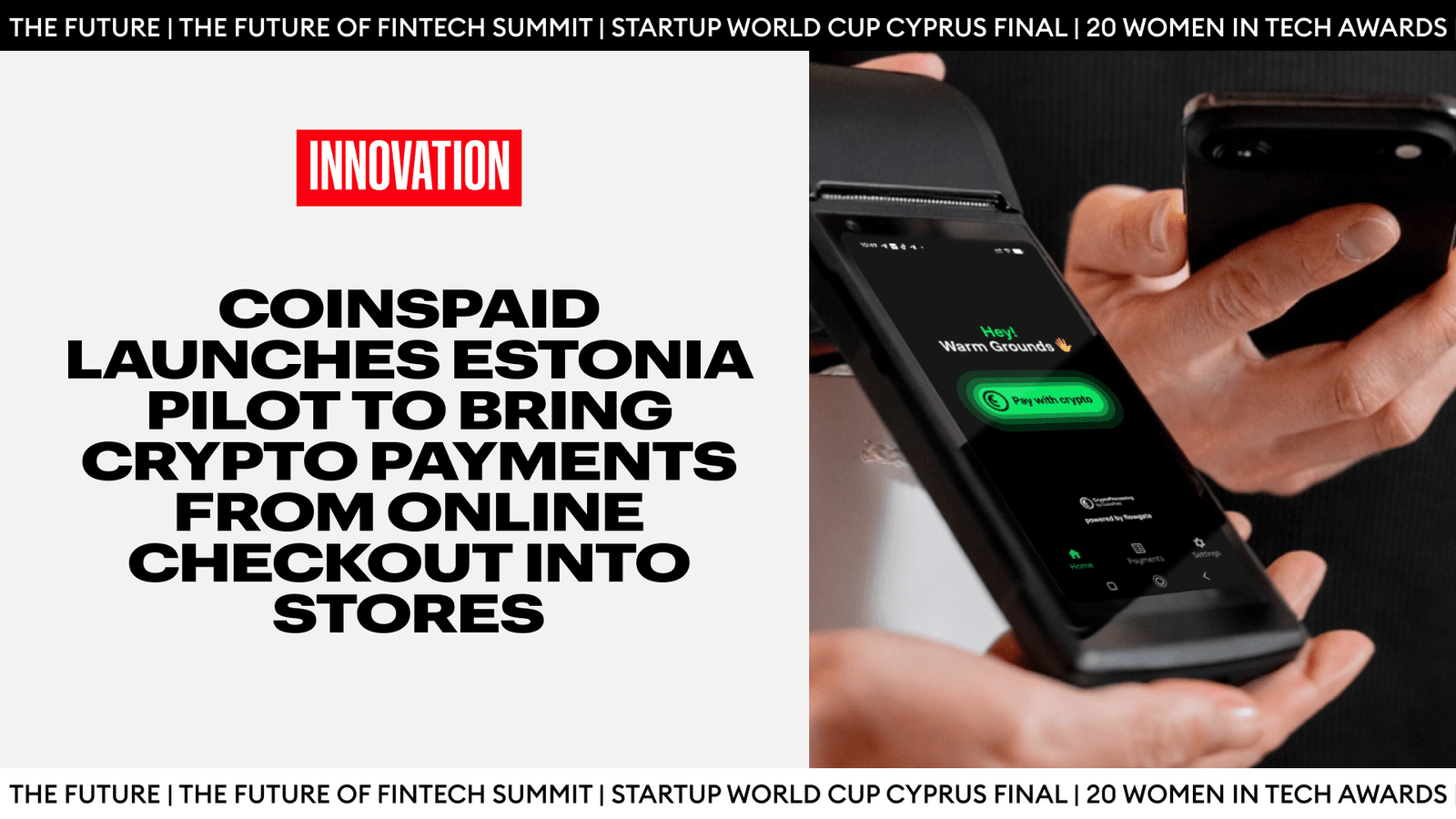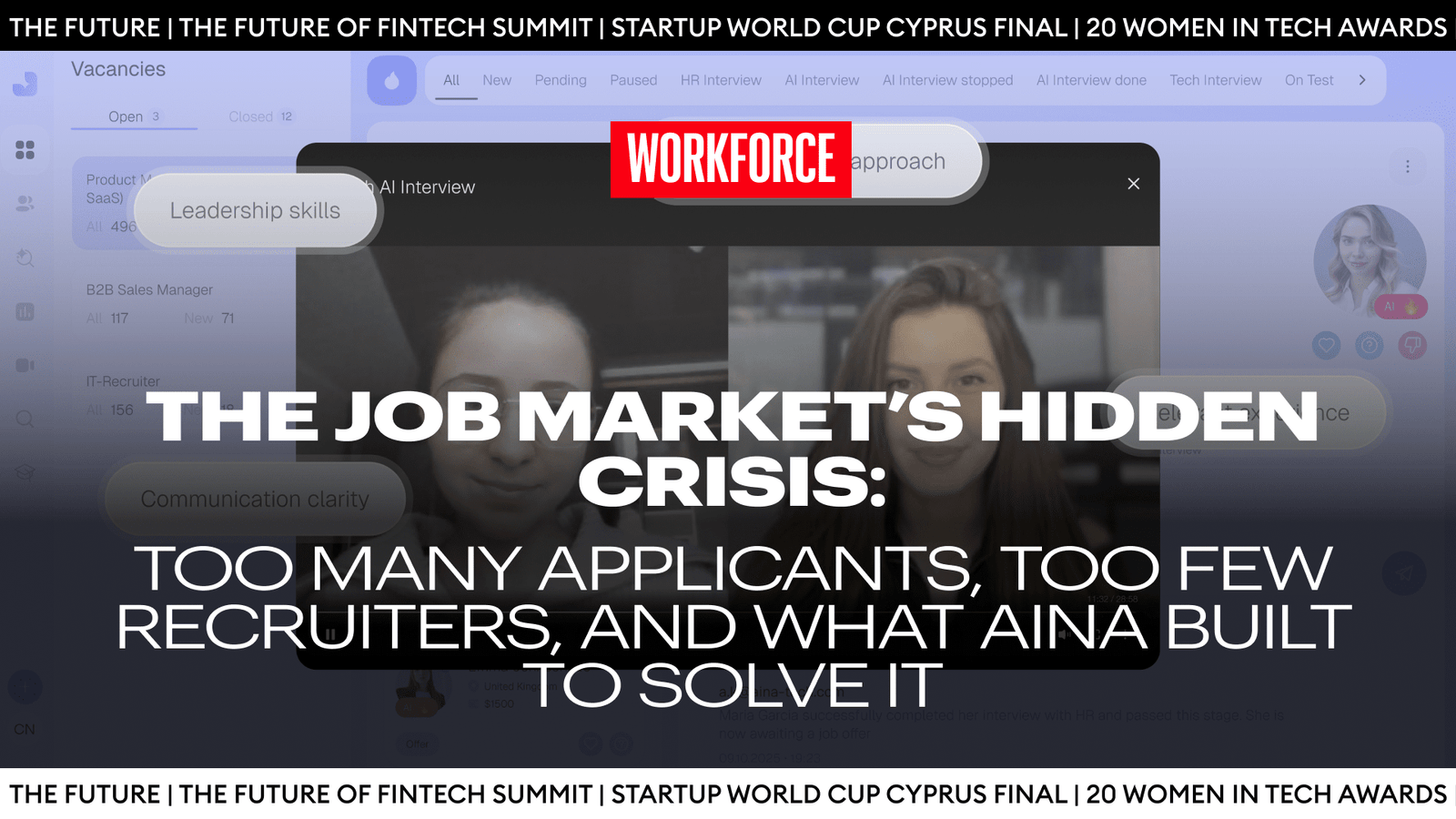Books rarely make headlines in Cyprus. But in a country where nearly 47% of the population didn’t read a single book in the past year, the numbers speak for themselves. According to the 2024 Eurobarometer, Cyprus ranks among the bottom five EU countries for book readership, with fewer than one in five Cypriots identifying as regular readers.
This isn’t just a cultural gap; it’s a missed opportunity. As UNESCO puts it:
Follow THE FUTURE on LinkedIn, Facebook, Instagram, X and Telegram
“Culture and the arts are integral to the holistic and inclusive development, resilience, and overall well-being of individuals and societies… They play a vital role in the flourishing of human imagination, creativity and self-expression… while opening up social and economic prospects for all learners.”
For Haris Ioannides and Anna Ioannidou, co-founders of the Limassol International Book Fair, these figures weren’t just concerning, they were the push they needed to act. Launched in 2022, the fair is their way of building cultural infrastructure from the ground up, reconnecting Cyprus with the written word and positioning books as a driver of both identity and progress.
In this exclusive interview with The Future Media, Haris and Anna speak about reclaiming reading culture, building international partnerships, and how this might be the first chapter of a national revival.
Can you share with us your background and what inspired you to create the Limassol Book Fair? How did your personal and professional journeys lead to this initiative?
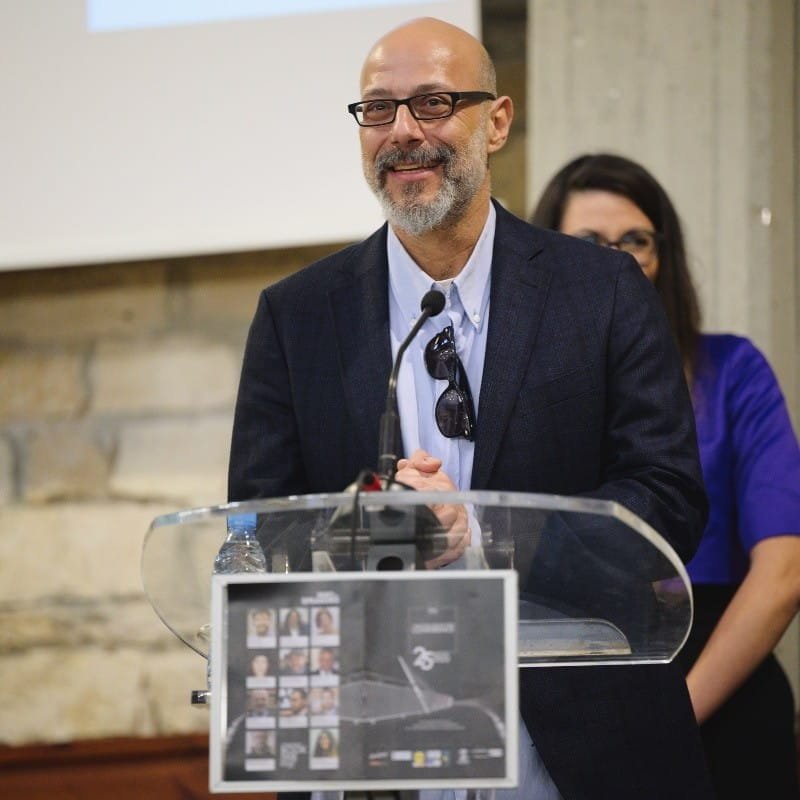
Both Haris and I (Anna) share a deep love for the world of books—it’s part of who we are. Haris has been immersed in literature since a very young age, growing up in a household where books were a way of life. His father is a well-known writer, and Haris himself has been at the helm of Armida Publications, a respected publishing house based in Cyprus, for the past 30 years. His long-standing engagement with the publishing industry has given him a profound understanding of the literary landscape, both in Cyprus and internationally.
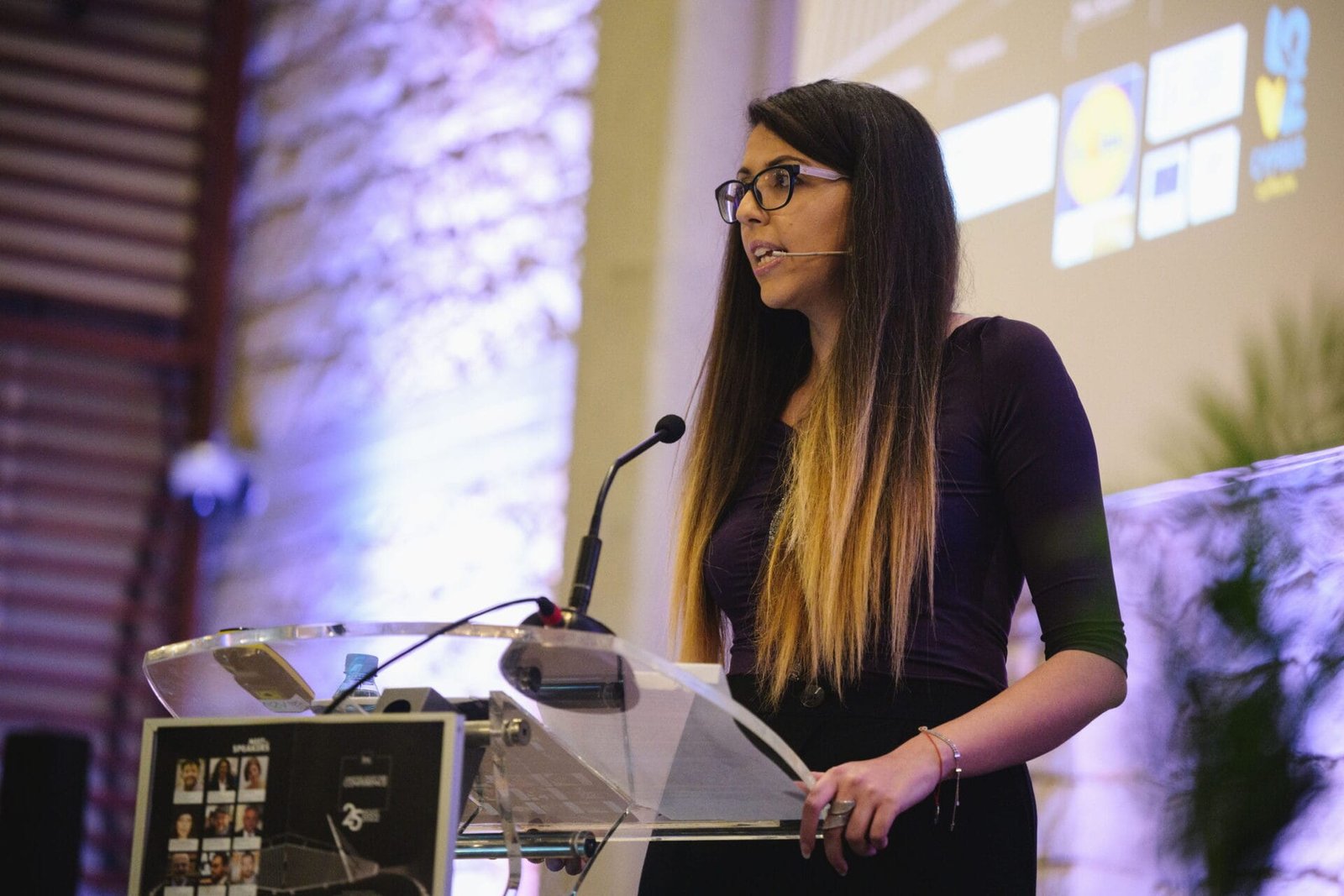
As for me, writing has always been my way of processing the world—my personal form of expression. I’ve been writing for as long as I can remember. Since 2016, I’ve been curating my own literary blog, Apotipomata (“Imprints”), which focuses on literature and poetry. In 2022, I published my first poetry collection, which was later shortlisted for the National Literature Awards—a milestone that reaffirmed my belief in the power of words.
Haris and I previously collaborated on another book-related initiative, and over time, we became close friends. In 2022, through a series of passionate conversations and a shared sense of purpose, the idea of founding a book fair in Cyprus began to take shape. From the beginning, we were both incredibly enthusiastic and driven by the belief that such a project was not only possible—but necessary.
We envisioned the Limassol International Book Fair (LIBF) as a vibrant platform—a cultural meeting point—where local readers and writers could connect with professionals and book lovers from across Europe and the wider MENA region.
We wanted to provide a space where people could exchange ideas, explore industry trends, and co-create. What began as a dream has already grown into a dynamic cultural movement. We believe that Cyprus deserves its own strong voice in the international literary landscape, and we aim to build an authentic hub of creativity, dialogue, and cultural diplomacy for the island and beyond.
The Limassol International Book Fair has become a major cultural event in Cyprus. What makes it unique compared to other book fairs around the world, and what do you believe sets it apart?
What makes the Limassol International Book Fair unique is that it was built from the ground up with both the local and the international in mind. Unlike many other book fairs that lean either towards trade or general public programming, we insisted on doing both, adapting a hybrid model which works very well in smaller markets. It’s not often we see a serious professional conference taking place next to school visits, poetry readings, tech showcases, and community-led events.
But what truly sets us apart is our context. Cyprus isn’t just a backdrop for LIBF, but the meeting point. The Fair reflects the island’s identity as a crossroads of cultures, languages, and histories. We’ve used that to our advantage: showcasing translation, promoting inclusion, and building cultural bridges between Europe, the Middle East, and North Africa.
In terms of local impact, what we truly wish for is to help reshape how culture is experienced and discussed. We’ve tried to create a space where Cypriot authors sit beside international names, where young readers meet their first book, and where policy makers and publishers talk about the future. That shift—from passive consumption to active participation—is the real success and the only way to empower a cultural industry as influential and multifaceted as publishing. We truly believe that the Fair, through the opportunities it creates, enables the local publishing industry to become more competitive.
You’ve chosen to operate the Limassol International Book Fair as a non-profit organization. Why was that decision important, and how does the non-profit model help further your mission in the long term?
From day one, we wanted our fair to be a cultural institution—one that could serve the public good, support the ecosystem around books, and open up the space for ideas that don’t always have market value but carry significant cultural weight.
The non-profit structure gives us that freedom. It allows us to collaborate across sectors—public, private, and civil society—without being tied to narrow interests. It also aligns with our long-term goals: building trust, securing EU partnerships, and creating programs that support education, inclusion, and innovation in publishing.
Being a non-profit private initiative, self-reliant with minimal state support, is not easy, but it’s the one that allows us to grow with integrity, stay independent, and keep the focus on impact.
How do you balance the financial realities of running a major event while keeping it accessible and aligned with your mission?
We approach the financial aspect of the Limassol International Book Fair step by step, always aiming to strike a careful balance between ambition and practicality. We are deeply committed to staying true to our mission—to make culture and letters accessible to all—while being strategic and well-organized in how we manage resources, partnerships, and growth. Every decision involves weighing the risks against the opportunities that emerge along the way, and over time, this has made us more agile, resilient, and focused.
Of course, the journey hasn’t been without challenges. One of the most significant hurdles has been securing long-term trust and investment from both the private and public sectors. In Cyprus, culture is still not supported or valued as a strategic sector to the extent it is in many other countries. As a result, we often find ourselves needing to prove the value of what we are building—again and again. It requires twice the effort, both in terms of outreach and delivery, to inspire confidence in potential sponsors and stakeholders.
Yet, each challenge has also been an opportunity for growth. We’ve learned to be resourceful, to build strong networks, and to create partnerships based on transparency, shared vision, and long-term impact. With every successful edition, we see more people believing in the potential of the Book Fair—not just as an event, but as a cultural institution in the making. Our aim is to gradually build a sustainable ecosystem around the Fair, one that can continue to grow, inspire, and represent Cyprus on the international cultural map.
How do you measure the success of the Limassol International Book Fair in terms of its impact on the local community, businesses, and the cultural sector?
We measure the success of the Limassol International Book Fair through both quantitative growth and qualitative impact. From its inception, the Fair has shown a clear upward trajectory in attendance, programming, and participation. In our first year, we welcomed over 3,500 attendees, hosted 60 events, and featured 44 exhibitors. In the second year, these numbers rose to over 5,000 attendees, 100 events, and 88 exhibitors. By the third edition, we reached more than 7,500 attendees, with 120 events and 112 exhibitors. This steady and exponential growth is a strong indicator of the Fair’s rising relevance and appeal, both within Cyprus and beyond.
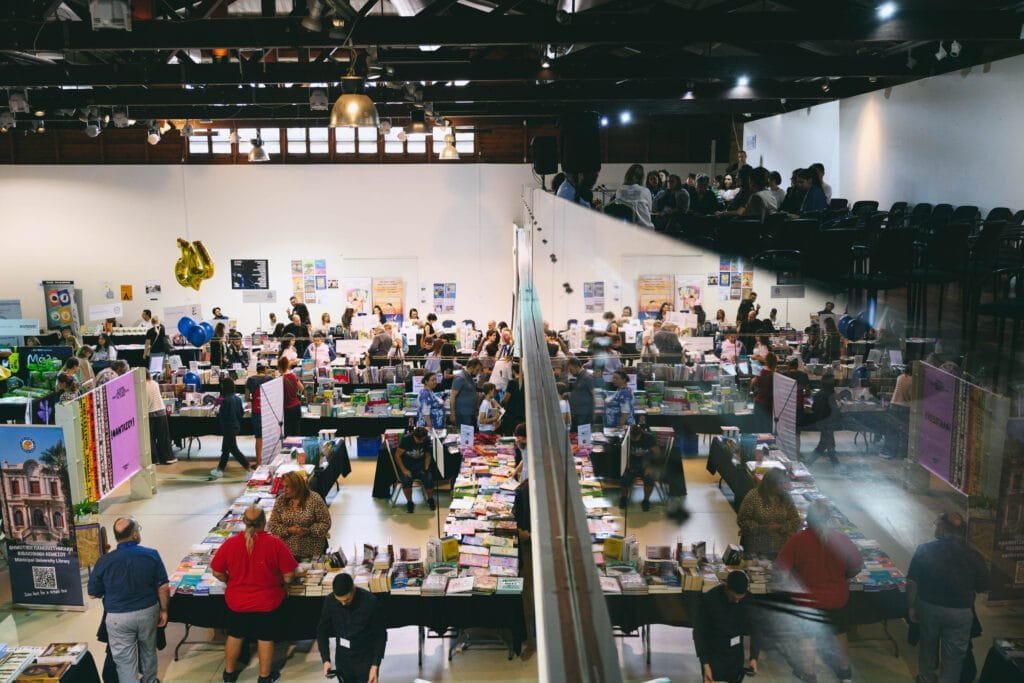
Beyond numbers, our success is also evident in the expansion of our partnerships and the evolving professional landscape. For example, our Professional Programme has grown significantly: it began as a three-hour session in 2022 and has since evolved into a full-day conference featuring multiple speakers, thematic panels, and wider participation.
We’ve established strategic collaborations with both local and international institutions, including the Cyprus Association of Librarians – Information Scientists, Creative Europe, and the Frankfurt Book Fair, among others. We are also proud members of Aldus Up, the European network of international book fairs, which reinforces our role within the broader literary and publishing ecosystem.
One of the most tangible outcomes of the Fair’s influence is the reestablishment of the Cyprus Publishers Association, which occurred shortly after our first edition. This revitalization of the local publishing body has led to renewed international engagement.
For instance, following a joint visit with the Deputy Minister of Culture to the Frankfurt Book Fair in 2022, the Ministry decided to reintroduce a national stand for Cyprus at Frankfurt from 2023 onwards, after a hiatus of more than a decade. Today, the Cyprus Publishers Association regularly participates in key international events, including the Frankfurt, Bologna, and Thessaloniki Book Fairs.
Ultimately, the Limassol Book Fair serves not only as a celebration of books and ideas, but also as a strategic driver of cultural diplomacy, creative industry development, and international collaboration, reaffirming Cyprus’s role as a bridge between continents and cultures.
Attracting international authors and publishers is a key priority for us, and we approach this through strategic partnerships and targeted collaborations. As mentioned above, we work closely with international publishing houses as well as with cultural institutions such as Alliance Française de Limassol, the Goethe-Institut Cyprus, and others, inviting them to actively participate in the Fair by contributing authors, speakers, and curated events.
We also maintain a strong relationship with the Creative Europe Desk Cyprus, through which we co-host authors and professionals from across Europe. Notably, the Limassol Book Fair is a partner in ThinkPub, a Creative Europe-funded programme that brings together a vibrant network of publishing professionals across the continent. Through this initiative, we co-organize industry-focused seminars featuring keynote speakers from abroad, covering timely and critical topics within the publishing world.
The growing interest from both professionals and the public—publishers, authors, cultural institutions, and book lovers alike—is what drives us forward. It validates our mission and keeps our team energized and committed to cultivating a dynamic and inclusive platform for books, ideas, and cross-cultural exchange.
Looking ahead, what’s next for the Limassol Book Fair? Are there any new projects or partnerships you’re excited about that will shape the future of the fair and its role in the global literary community?
Our vision for the Limassol Book Fair is one of steady growth and deepening collaboration, both locally and internationally. A key focus moving forward is to strengthen our ties with the global publishing industry, with a particular emphasis on the Arab world. We are proud to be welcoming some of the most respected professionals from the Arab publishing scene to future editions of the Fair, opening up new avenues for dialogue and cooperation between Europe and the MENA region.
In addition, we are excited to introduce the concept of a Guest of Honor Country, which will spotlight a different nation each year through a curated programme of literary and cultural events. We are also in the process of launching our first fellowship programme, aimed at supporting emerging talent and fostering professional exchange.
Moreover, we are actively exploring participation in new EU-funded initiatives, which will not only enhance our sustainability efforts but also provide valuable platforms for knowledge exchange and long-term international partnerships. All of these developments are aligned with our mission to position the Limassol Book Fair as a regional hub with a truly global outlook.










